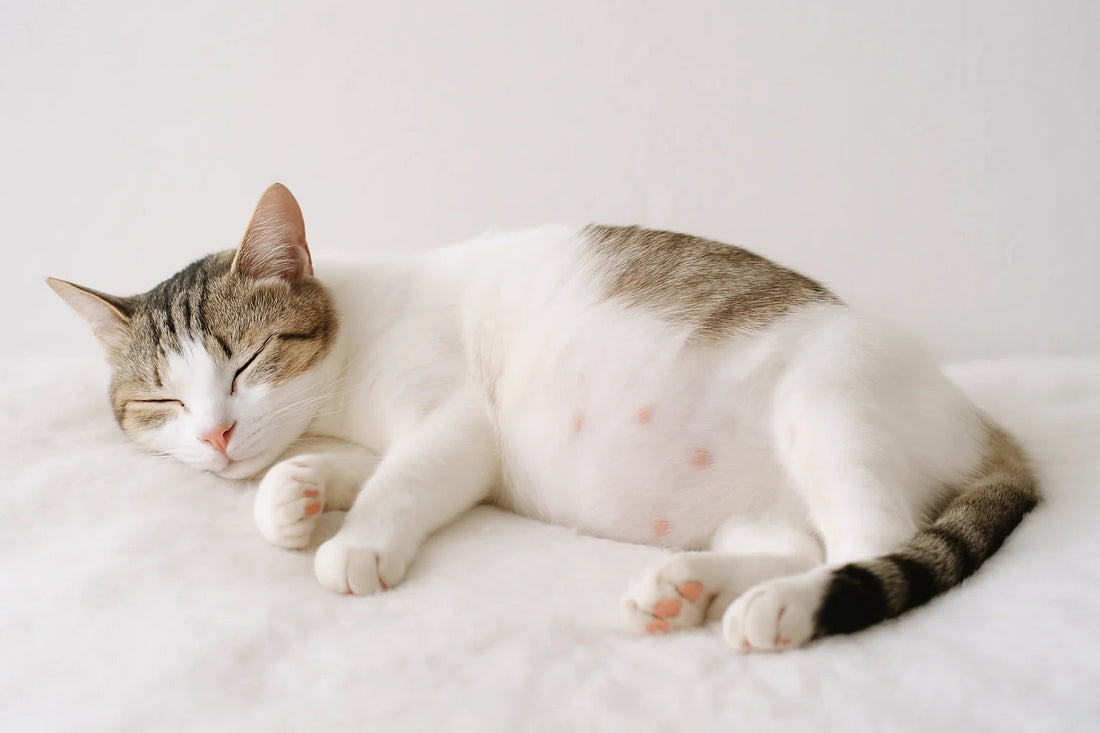
Your Cat’s Pregnancy: How Long It Lasts & How to Help
So... Your Cat’s Pregnant? First off—breathe.
Finding out your cat is expecting can feel exciting, nerve-wracking, and honestly… a little confusing. How long is she going to be pregnant? What should you do to help her? Is she going to need anything special?
You’re in the right place. Let’s walk through it together.
🐱 How Long Is a Cat Pregnant?
Cats are usually pregnant for about 63 to 65 days—that’s just over two months.
Some cats might go into labor a little early or a little late (anywhere between 58 to 70 days is considered normal), but you can expect kittens in roughly 9 weeks.
That might not seem like much time—but a lot happens during those weeks.
📆 What’s Happening Week by Week?
Here’s a quick breakdown so you know what to look out for:
Weeks 1–2:
Not much changes on the outside, but big things are happening internally—fertilization and early development.
Weeks 3–4:
You might notice her nipples becoming pinker and slightly swollen (that’s called “pinking”). Some cats get a little nauseous or more affectionate.
Weeks 5–6:
Her belly will start to round out, and she’ll probably eat more. You might even feel gentle kitten movement if she lets you touch her tummy.
Weeks 7–8:
This is when she starts “nesting.” She’ll look for quiet, comfy spots to give birth. You might see some discharge as her body gets ready.
Week 9:
It’s go time! Labor could start at any moment now.
🧡 What You Can Do to Help Her
You don’t need to overcomplicate this—you’re already doing great by being here. Here are a few simple ways to support your soon-to-be mama:
🥣 1. Feed Her for Two (Well, More Like Six)
Your cat’s body is working overtime, so she needs more calories, more protein, and more nutrients. A lot of vets recommend switching her to kitten food during pregnancy and nursing—it’s higher in everything she needs.
You can also sprinkle in gentle, natural add-ons like:
- Goat milk powder – rich in probiotics and hydration support
- Pumpkin powder – great for digestion and appetite support
- Bone broth or meat-based wet food
Keep her meals frequent, fresh, and easy to digest.
🧺 2. Make a Nest
She’s going to want a quiet place to give birth—and the sooner you set that up, the better. Grab a box or low bin, line it with soft blankets or towels, and place it in a cozy, low-traffic area. Bonus if it’s warm and dimly lit.
🩺 3. Schedule a Vet Visit (if You Haven’t Yet)
Even if she seems fine, it’s worth getting a prenatal checkup. Your vet can help estimate how far along she is, check for any risks, and let you know what to expect when it’s time for labor.
🧘 4. Keep the Vibes Calm
Try to keep her routine consistent. Avoid loud noises, lots of visitors, or major changes to her environment. She’ll let you know when she wants love—or space. Just follow her lead.
🚨 When to Call the Vet
Keep an eye out for anything unusual, especially as she gets closer to delivery:
- No signs of labor by day 70
- Refusing food for over 24 hours
- Bloody or unusual discharge
- Straining for more than 30 minutes without a kitten
- Any signs of distress or pain
🐾 After the Kittens Arrive...
Once her little ones are here, she’ll go full mama-mode—nursing, cleaning, protecting. It’s a beautiful (and busy) time. Keep her on the same high-calorie food and give her space to care for her babies.
And don’t be surprised if she wants even more love and food than before—birth takes a lot out of her.
Final Thoughts
So, how long is your cat going to be pregnant? Around two months—but don’t let the short timeline fool you. These next few weeks are a big deal, and your support matters.
You don’t have to do everything perfectly—just be present, keep her well-fed and stress-free, and trust your instincts (and your vet’s).
You’ve got this. And she does too. 💛








